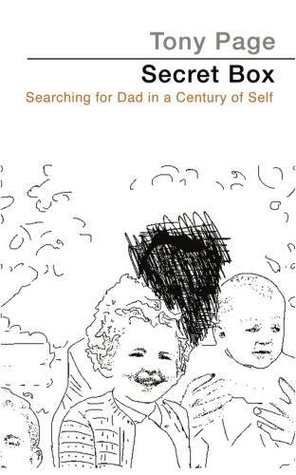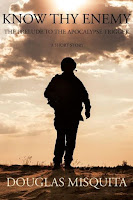
During the humid Delhi summers of 2013, fresh out of school, 'bibliophile' was enough of an adjective and a title to define my personality. Yep, my entire personality- because whoever I was, whatever I knew was owing to (and also limited to) what I read. This included books, newspapers, magazines and textbooks. SO MANY TEXTBOOKS. I was THAT kid in school. In retrospect, I now realise that entering college I was thoroughly taken aback by how much flexibility and scope there was for me to try something I never had. The clichéd narrative of transformation of a nerd into a spunky character seems absurd, but clichés exist for a reason: it isn't always larger than life as is often portrayed in popular media, but gradual- so sneaky at times that you barely even notice. You realise it when you bump into an old classmate from high school and find yourself completely detached from the life you were living 4 years ago, and from the person you were 4 years ago. SO I guess what I am trying to say is: over the course of the last 5 years, I changed. I still love reading a lot, but adulthood has been a tricky terrain so far.
While I was always a nerd as far as I can remember, it wasn't until I was 12 that I found the goldmine of leisure reading. So yes, I missed out on the Enid Blyton and Nancy Drew and PG Wodehouse and Harry Potter phases of the younger life (even though I like to believe I have compensated now as an adult) and dived straight into Charles Dickens. Not sure why, but I think having a spelling competition ahead of me made me lean into these choices. It is no coincidence then, that my if-I-use-big-words-I-will-make-my-point-effectively phase was around the same time.
I had a Robin Sharma phase too- I read around 6 of his books and my belief in self-help literature was annoyingly high. Today, I still cherish reading The Monk Who Sold His Ferrari, and Who Will Cry When You Die, but I also takes whatever jokes are made at their expense with loads of laughter.
When I started the blog, it was to learn web publishing and such, and more importantly, I was so thrilled by the idea of this book bloggers community! I was getting in touch with authors directly, interviewing them and getting to know them a little better- it was a great ride, but this amusement park is now shut.
1. Now that I look back, a hidden motivation for me to have this blog had always been having something to talk about. Cut me some slack here: I was trying to fit in where it felt like I belong- there were so many pop culture references thrown around, and for someone who had not watched a single sitcom, or been a fan of a single band, books were the best icebreaker. Anyone talking about movies would bring me a great segue for the whole movie-book adaptation controversy.
2. During these 5 years, so much changed. Personally, what changed was that a lot of my education now came not from books- but from experiences and people. Hate to admit it, but I even enjoy people's company …sometimes. Fun fact: When I first joined facebook, it was a reluctant step and to avoid being discovered my name was Kritika Bibliophile (which explains the URL https://www.facebook.com/kritikabibliophile) so that was a great talking point too
3. What also changed was the world around me. When I started the blog, #bookstagram didn't exist. It was a fairly different community with obscure for a and such. With the obscurity depleting, its charm for me did too.
4. Another pivotal world change: it feels like there was a phase of bombardment of self-publishing and indie publishers, and my review requests were always full and I was apologising all the time for posting the reviews later than decided.
5. This is pretty lame: I had told my self I will stop once I cross 1lakh page views. I liked the number game, I cannot defend myself here. But then I got Spoon University and DU Beat to look at the numbers of, and once again, the charm of my own blog faded.
6. I have often felt like that kid in the attic, and books have been there to rescue me. So: Don't get me wrong; books are still my saviour in more ways than I can imagine, but when you're told in therapy to take a long hard look at things you are doing that no longer bring you happiness, blogging came up.
7. Reading Harry Potter as an adult put a lot of things in perspective and one of my takeaways from the whole experience was that I don't HAVE to do anything. Like Hermione, I haven't given up on books- never make the mistake of assuming that- I have only learnt more of the world beyond those books and a lesson or two in survival.
8. Emails. When I started blogging as a naïve school student, I didn't have to think about emails as a drudgery. In fact, I was trying to understand the email etiquette. Now, having managed some 11 email IDs, I have to say I am done.
9. This is the worst part: I come across a post I remember writing after hours of painstaking references to the dictionary, but reading the articles now, I do nothing but cringe. The only way I remember 2013 is that I thought using big words will embellish my review.
10. The blog has been my longest commitment ever. (In addition to a few friendships that make me swell with pride- because sure, longevity may be overrated, but longevity with the right people is a heaven you don't have to die for) I digress. The blog has been my longest commitment but not a proud one. I am completing 2 years in a job this month that I am in fact very proud of- so I will let that take the limelight now.
11. Leisure reading (is that what you kids call it?) has been such a delight. Being able to read a book without mentally commenting on the prose, style, information, characters is so pleasing.
12. There's been a lesson in humility: I don't like a book doesn't mean it is bad. I refrain from dumping on a book because the more I see and understand the world, the more I realise how unqualified I am to comment on an author's work- I can only tell what the reading experience was for me, but I can never critic it in the real sense of the word.
13. To be honest, a huge reason this is happening is because I had a burnout last year. Life. And then there's a tonne of academic reading to be done each day. I got myself a library card and now there's no limit and it is all so overwhelming and so I just don't have time to deliver quality and a goodbye is always better than a compromise.
But over the years, I have had the immense pleasure of getting to know so many bibliophiles and authors and other SO SO IMPORTANT people working in the publishing industry, I am owning up to it and getting back to books- my lovers.
 |
| Happy that before going away, I got to see this wee feature at BBD, so perfectly described *heart eyes* |
PS: So I think I'm shutting this blog down now…help me pick the best reason.
PPS: it was a home run folks. I'm glad we did this. :)




















